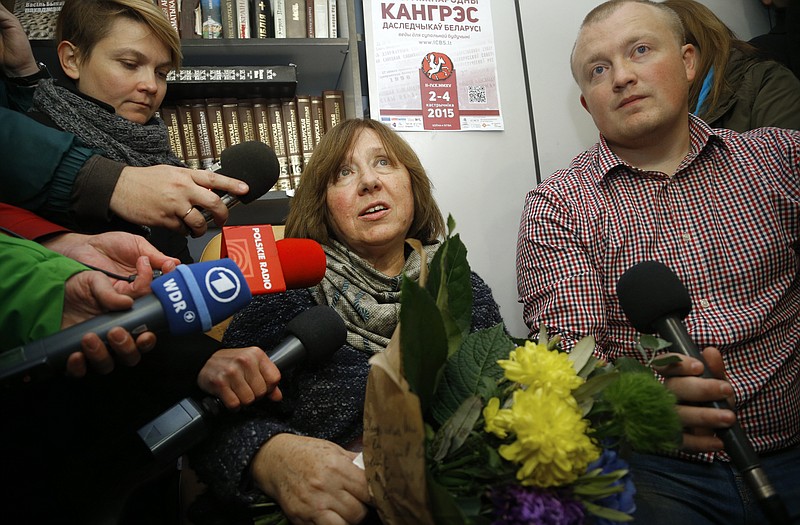MINSK, Belarus (AP) - With a reporter's eye and an artist's heart, Svetlana Alexievich writes of the catastrophes, upheaval and personal woes that have afflicted the Soviet Union and the troubled countries that succeeded it. Her writings, characterized by plain language and detail so visceral it's sometimes painful to read, won her this year's Nobel literature prize.
She is an unusual choice. The Swedish Academy, which picks the prestigious literature laureates, has only twice before bestowed the award on non-fiction - to Winston Churchill and Bertrand Russell - and had never honored journalistic work with a Nobel.
Alexievich's work straddles the divide. Much of her books are essentially oral history, where the voice is not hers and she chooses only what to include. Her narrative passages are straightforward, free of literary conceits.
"My calling as a writer involves me in talking to many people and examining many documents. Nothing is more fantastic than reality. I want to evoke a world not bound by the laws of ordinary verisimilitude, but fashioned in my own image," she wrote in her 1989 book "Zinky Boys," the title a reference to zinc coffins in which the bodies of Soviet soldiers killed in Afghanistan were shipped home.
The 67-year-old Alexievich's books have been published in 19 countries, with at least five of them translated into English. She also has written three plays and screenplays for 21 documentary films. She is the 14th woman to win the award since 1901.

